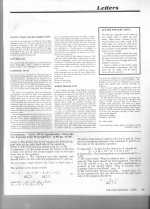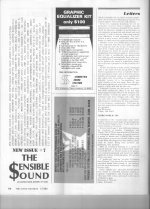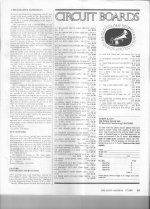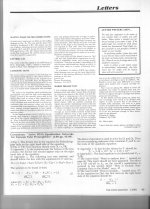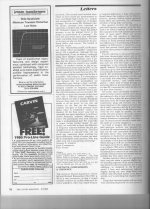Do DeWalts and Makitas sound different on Met7s ?.Scott was referring to the fact that he likes industrial and noise music and natural noise in nature.
Dan.
"Mercury should be very low noise and while higher resistance than silver or gold it will be constant over millions of operations. The datasheet I checked suggested 50 milliOhms of contact resistance. For silver or gold contacts there still is a contact breakdown process needed for electrical connection. I believe mercury wetted relays don't have that issue."
AFAIR this is a "feature" of all reed contacts, including dry. They are required to be made of magnetic material to function and a value of this order comes from the bulk resistance of the contact wire, not specifically of the closed contact resistance.
AFAIR this is a "feature" of all reed contacts, including dry. They are required to be made of magnetic material to function and a value of this order comes from the bulk resistance of the contact wire, not specifically of the closed contact resistance.
Yes, I am saying this which is old knowledge, new (?) knowledge is that this excess (current) noise is not white or pink ie it has spectral signature and dynamic characteristics according to the series resistance material.I think you are saying that different resistive materials have a different noise component and that there is a strong noise modulation with signal with different materials. This sounds interesting but should be pretty easy to test for with instruments, not just ears. I know some resistors have a lot of added noise when current is passed through (e.g. carbon) but far less with metallic resistors.
I am also saying that non bulk conductive materials in proximity to (surrounding) active conductors can cause stability and dithering of system noise, and consequent change and/or reduction in downstream system excess noise production.
Increase in excess noise is also possible according to material.
In either case the system signature can be rendered subjectively agreeable or subjectively disagreeable according to mixtures of materials used.....some materials play nice together, some don't.
I need to mod my soundcard to get perfectly stable and fine settable loopback gain (10 turn pots) but at this point in time I am getting valid difference signal when comparing recordings with and without my filters.
I will also run loopback tests with ferrite filters installed and see what I get.
What is this 'contact breakdown process' for (inert) gold ?.Mercury should be very low noise and while higher resistance than silver or gold it will be constant over millions of operations. The datasheet I checked suggested 50 milliOhms of contact resistance. For silver or gold contacts there still is a contact breakdown process needed for electrical connection. I believe mercury wetted relays don't have that issue.
Dan.
Does anybody have suggestion of cheap barebones pcb Ebay/Amazon/Tabao etc outboard soundcard with 96k or 192k sampling and direct input and output connections...ie no level controls or noisy preamps ?.
Exactly what I have in mind. Long long time ago, I designed a turntable where the wires in the pivot were replaced by 4 needles in platinumI believe mercury wetted relays don't have that issue.
immersed in 4 mercury buckets, to avoid twisting forces of the wires when the arm moves. I did not noticed any sound deterioration at that time.
A very stupid idea, indeed. I was young.Same as a Keith Monks arm. Now banned because of the mercury.
A very stupid idea, indeed. I was young.
In elementary school, the teacher gave us mercury to play with in our little hands.
I still have one of the Keith Monks mercury arms, sitting in its box. Thinking about
rewiring the arm and using it for my Decca 4RC cartridge.
Last edited:
T, I have tried to find what I originally wrote in 'The Audio Amateur' about 40 years ago about the mercury relays in the 'Spiegel Box' that I tried ABX with. These relays were relatively large (5A) in a sealed metal can with an octal base.
Because these relays appeared to 'forgive' sound differences between components, I did a search, starting with the manufacturer (Clare) as to how they were composed internally. One thing that stood out (beyond the mercury contact itself) was the MATERIALS that the contacts and their leads were composed of. Certainly NOT gold, silver or copper. There were many dissimilar metal junctions in these relays. Could this be the problem? Who knows?
What matters was the RESULT, when I evaluated the ABX Box. Later, we ABXed the Spiegel box comparing it to a wire, by using SILVER on SILVER switches, (our first introduction to silver on silver switches in audio) and found that we could hear the mercury relays in this ABX test. Just think, we went all that way to learn something new! That was almost 40 years ago, I'm too tired to prove it again today.
Because these relays appeared to 'forgive' sound differences between components, I did a search, starting with the manufacturer (Clare) as to how they were composed internally. One thing that stood out (beyond the mercury contact itself) was the MATERIALS that the contacts and their leads were composed of. Certainly NOT gold, silver or copper. There were many dissimilar metal junctions in these relays. Could this be the problem? Who knows?
What matters was the RESULT, when I evaluated the ABX Box. Later, we ABXed the Spiegel box comparing it to a wire, by using SILVER on SILVER switches, (our first introduction to silver on silver switches in audio) and found that we could hear the mercury relays in this ABX test. Just think, we went all that way to learn something new! That was almost 40 years ago, I'm too tired to prove it again today.
Attachments
Last edited:
Do NOT use a Keith Monks arm with a strain gauge cartridge. Don't ask how I know.
Comparing an Octal based relay to a silver on silver switch adds lots of potential issues. There are Hg relays with identical pinouts to non wetted contacts. That would be a better comparison.
Mercury contacts are not good for microvolt dc applications with significant thermals. Not an issue with audio normally.
Comparing an Octal based relay to a silver on silver switch adds lots of potential issues. There are Hg relays with identical pinouts to non wetted contacts. That would be a better comparison.
Mercury contacts are not good for microvolt dc applications with significant thermals. Not an issue with audio normally.
No need. J.C., I'm not arguing against what you found at this time, and, as you told you were several comparing your relays with strait wires and all noticed a clear difference, i have no reason to not believe your claim.That was almost 40 years ago, I'm too tired to prove it again today.
Just i'm doubtful it is correlated with only some electrical property of the mercury alone. And, more than this, that can happens with high levels and 6 Ohms of load (switching speakers) could be the same at 1V and 10k.
Don't you agree ?
By the way, you mentioned copper with mercury. (gold and silver is not a good idea ;-). What happens if some plug a copper wire in mercury ? It is slowly eaten ? (with aluminium, it is funny).
Last edited:
... What matters was the RESULT, when I evaluated the ABX Box. Later, we ABXed the Spiegel box comparing it to a wire, by using SILVER on SILVER switches, (our first introduction to silver on silver switches in audio) and found that we could hear the mercury relays in this ABX test. Just think, we went all that way to learn something new! That was almost 40 years ago, I'm too tired to prove it again today.
That's a geat one: ABx'ing the ABx boxes!
Not that I need any proof, but this one stands solid ground.
Do DeWalts and Makitas sound different on Met7s ?.
Don't know, Einstürzende Neubauten would probably use Bosch.
BTW guys there are metal systems liquid at room temperature that are non toxic, an easy upgrade.
Last edited:
That's a geat one: ABx'ing the ABx boxes!
The age old question, Quis custodiet ipsos custodes? has finally been answered
The sequence is 53 seconds and there is mention that it can be looped indefinitely, but no mention of real randomness.
There is mention of it being mathematically derived -
It would have to have coherance in it some where.... the math derived portion. All frequencies needed in the appearance on a scope of broad band noise. but it isnt random.
THx-RNMarsh
Don't know, Einstürzende Neubauten would probably use Bosch.
BTW guys there are metal systems liquid at room temperature that are non toxic, an easy upgrade.
I have used liquid metal thermal compound on a nickel plated copper CPU heatspreader. I believe it's an alloy of gallium, indium, and tin. Have to be careful with it and it eats aluminum, though.
Mercury??Same as a Keith Monks arm. Now banned because of the mercury.
What's wrong with mercury??
I played with that stuff for years.. Best part was trying to squeeze it on the table with my fingers. It really made quarters look so shiny.
Besides....., all the voices...I just ignore them..they just try to convince me that resistive materials ignore physics rules and do some silly noise thingy..
Jn
Here is a more complete record of what we did, 40 years ago.
Letters?
Not an article?
Jn
In elementary school, the teacher gave us mercury to play with in our little hands....
Yeah. We all played with mercury as a child, and are still alive to tell about it.
Does anybody have suggestion of cheap barebones pcb Ebay/Amazon/Tabao etc outboard soundcard with 96k or 192k sampling and direct input and output connections...ie no level controls or noisy preamps ?.
I've been eyeing these:
Hifime SPDIF Optical DAC (ES9018K2M)
Hifime ADC i2S Analog to Digital converter
The DAC has optical input which allows for galvanic isolation using a USB PSU or battery which is crucial. The ADC requires some weird HDMI I2S converter, may not be worth it unless perhaps the converter can feed both the DAC and ADC.
I keep expecting to find a Sabre DAC with a basic opamp I/V converter but for some reason they don't seem to exist commercially except for huge markup.
EDIT: AK4490 DACs seem to have come up in availability:
https://www.ebay.com/sch/i.html?_fr....TRC1.A0.H0.Xak4490.TRS0&_nkw=ak4490&_sacat=0
Last edited:
- Status
- Not open for further replies.
- Home
- Member Areas
- The Lounge
- John Curl's Blowtorch preamplifier part III
